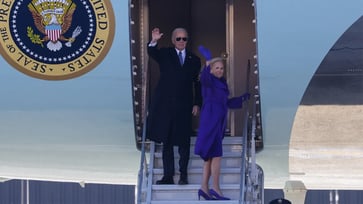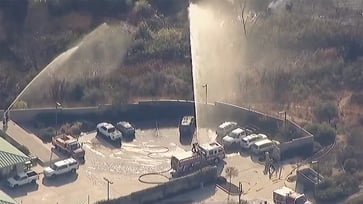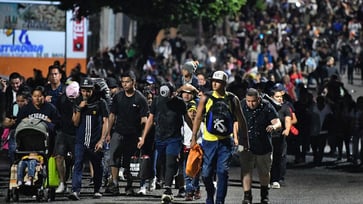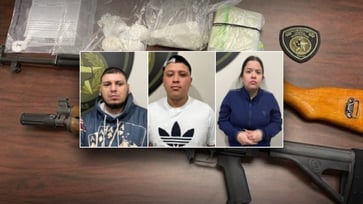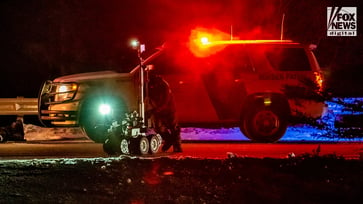In New York, a Japanese mob boss admits to plotting to smuggle nuclear materials to Iran.
Takeshi Ebisawa, a prominent leader in the Japanese Yakuza, is reportedly involved in negotiations for US weapons remaining in Afghanistan.
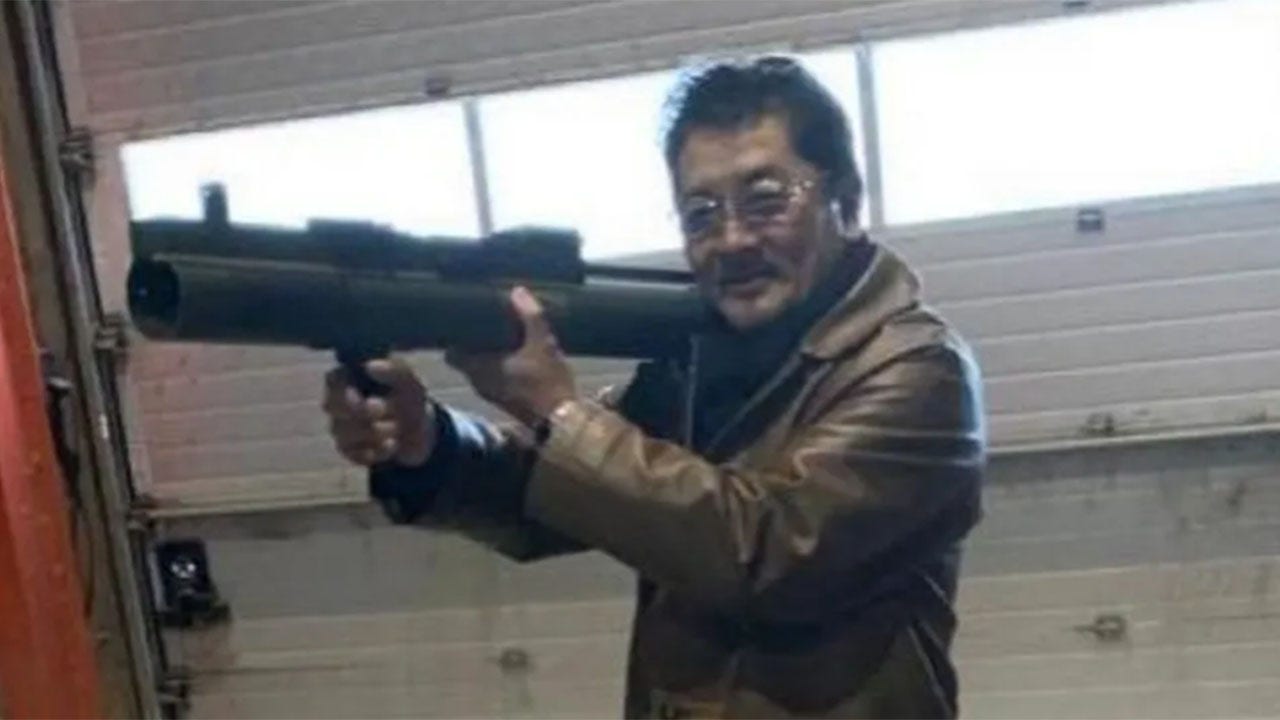
Last week, a man who federal prosecutors claim is the head of a notorious Japanese organized crime syndicate admitted guilt to conspiring to smuggle nuclear materials to Iran and U.S. weapons left in Afghanistan to Burma.
Takeshi Ebisawa, a 60-year-old Japanese yakuza leader, pleaded guilty in Manhattan federal court on Wednesday to conspiring with associates to traffic nuclear materials, including uranium and weapons-grade plutonium, from Burma to other countries. He also admitted to international narcotics trafficking and weapons charges. According to the Justice Department, Ebisawa brazenly trafficked nuclear material, including weapons-grade plutonium, out of Burma while simultaneously working to send massive quantities of heroin and methamphetamine to the United States in exchange for heavy-duty weaponry such as surface-to-air missiles to be used on battlefields in Burma and laundered what he believed to be drug money from New York to Tokyo.

Since at least 2019, the Drug Enforcement Administration (DEA) had been investigating Ebisawa, as revealed by court documents and evidence presented in court.
Federal prosecutors claim that Ebisawa unknowingly brought an undercover DEA agent, posing as a narcotics and weapons trafficker, into his international network of criminal associates, which spanned Japan, Thailand, Burma, Sri Lanka, and the United States, among other places, "with the intention of arranging large-scale narcotics and weapons transactions."
The Japanese crime boss, Ebisawa, and his network were charged by US prosecutors with conspiring to traffic nuclear material to Iran. The indictment alleges that Ebisawa and his co-defendants negotiated multiple narcotics and weapons transactions with an undercover agent.
Ebisawa collaborated with others to acquire U.S.-made surface-to-air missiles and other heavy-duty weapons, which were intended for use by multiple ethnic armed groups in Burma, including the leader of an unidentified ethnic insurgent group, according to federal prosecutors. Additionally, he negotiated a deal to receive large quantities of heroin and methamphetamine in exchange for these weapons.
"The DOJ stated that Ebisawa knew the weapons were made in the U.S. and taken from U.S. military bases in Afghanistan. Ebisawa planned to distribute heroin and methamphetamine in the New York market."
He allegedly conspired to sell 500 kilograms of methamphetamine and 500 kilograms of heroin to an undercover agent for distribution in New York, prosecutors claim.
In addition to being accused of laundering $100,000 in purported narcotics proceeds from the U.S. to Japan, Ebisawa was also implicated in the scheme.
In early 2020, Ebisawa disclosed to an undercover agent and a DEA confidential source that he possessed a substantial amount of nuclear materials which he intended to sell.
Ebisawa reportedly provided the undercover agent with photos of rocky substances and lab analyses indicating the presence of thorium and uranium, and later urged the agent to assist him in selling his nuclear materials to an Iranian general for use in a nuclear weapons program, according to court documents.
Ebisawa allegedly offered to provide the Iranian general with "plutonium" that would be superior and more potent than uranium for the intended purpose.
Ebisawa, along with two other co-conspirators, allegedly proposed to an undercover agent that the Burma insurgent group leader sell uranium to an Iranian general, through Ebisawa, to fund the group's weapons purchase.
On a Feb. 4, 2022, video call, one of Ebisawa's co-conspirators allegedly revealed to an undercover DEA agent and a Burma insurgent group leader that they had access to over 2,000 kilograms of Thorium-232 and over 100 kilograms of uranium in the compound U3O8, which is commonly used in the production of "yellowcake," a uranium concentrate powder.

Ebisawa allegedly claimed he could produce up to five tons of nuclear materials in Burma. Prosecutors say they had several meetings in Southeast Asia to discuss ongoing transactions. During one of these meetings, one of Ebisawa's co-conspirators showed an undercover agent in a Thailand hotel room two plastic containers each holding a powdery yellow substance, which he described as nuclear samples of "yellowcake."
It is claimed that he stated that one container contained a sample of uranium in the form of U3O8, while the other container held Thorium-232.
With the help of Thai authorities, the samples were confiscated and then handed over to U.S. law enforcement for custody.
The DOJ stated that a U.S. nuclear forensic laboratory analyzed the samples and discovered detectable amounts of uranium, thorium, and plutonium. Specifically, the lab found that the isotope composition of the plutonium in the samples was weapons-grade, meaning that if produced in sufficient quantities, it could be used in a nuclear weapon.

Since his April 2022 arrest during a DEA sting operation, Ebisawa has been incarcerated in Brooklyn. In February, a superseding indictment was filed against him for international drug and weapons charges.
On Wednesday, Ebisawa pleaded guilty to six counts, including two counts of narcotics importation conspiracy that carry a mandatory minimum of 10 years in prison and a maximum of life in prison. He also admitted to other charges, including conspiracy to commit international trafficking of nuclear materials, international trafficking of nuclear materials, conspiracy to possess firearms, including machine guns and destructive devices, and money laundering.
Assistant Attorney General Matthew G. Olsen of the Justice Department's National Security Division stated that Ebisawa's guilty plea should serve as a reminder to those who endanger national security by trafficking weapons-grade plutonium and other dangerous materials on behalf of organized criminal syndicates that the Department of Justice will hold them accountable to the fullest extent of the law.
The investigation into Ebisawa and his associates revealed the alarming extent of international organized crime, including the trafficking of nuclear materials, fueling the drug trade, and arming violent insurgents.
us
You might also like
- In the Bryan Kohberger case, a judge in Idaho hears a defense motion regarding the murders.
- A fire broke out in Los Angeles County, prompting officials to issue evacuation orders.
- As fears of ICE raids intensify, a bustling Chicago district, often referred to as the "Mexico of the Midwest," has become a ghost town.
- Injured in a shooting at Antioch High School in Tennessee, three people were left in a lockdown.
- A German national who worked at the Pentagon during 9/11 was allegedly killed by a Vermont Border Patrol agent, according to the family.
